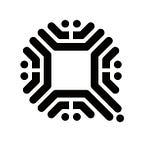Qtum Community & Development Updates — August 20th
Qtum at the 3rd Copenhagen Blockchain Summer School
The Blockchain Summer School was held at Copenhagen Business School on 13–17 August 2018, Qtum’s core developers, David Jaenson & Howard Yeh, as well as, our Marketing Director, Stella Kung, were invited as special guests and blockchain mentors.
The Summer School is an initiative of the European Blockchain Center and runs jointly for the third year by faculty members from Copenhagen Business School, Copenhagen University, and IT University.
The summer school underscores how to set up a development environment and how to work with decentralized blockchain application platform such as Qtum & Ethereum. The participants learn to design and implement smart contracts and code decentralized apps.
On the first day of the summer school, Stella Kung presented some significant challenges that the whole industry is facing and announced the latest collaboration between Qtum and Amazon Web Services(AWS).
“Qtum is now available on AWS, which allows developers to use the brand new Qtum AMI for creating their own dapps. This will enable nearly every AWS user to gain the benefit of running full-nodes on Qtum and contribute to the blockchain ecosystem by attracting developers. In addition, the Qtum AMI is free for those who want to implement Qtum-based smart contracts and uses cases, no matter network testing or public blockchain simulations.”
Stella also appealed to the developers’ curiosity for tinkering by asking them to participate in 2018 Qtum Hackathon: “The 2018 Qtum Hackathon has attracted nearly 1,000 hackers from over 66 countries, the winners will get the chance of winning up to USD 500K worth of QTUM tokens.”
Core developers of Qtum, David and Howard, respectively analyzed the strong flexibility and compatibility of the underlying technology of Qtum and demonstrated the whole process of the development of Qtum from the compilation to deployment, mainly using C, C++ and other mainstream development languages.
The European Blockchain Center, which helped put on the summer school, was founded by several professors from top universities in Europe, such as Omri Ross and Mitchal Avital. Being a leading global institution, the European Blockchain Center understands, creates, and realizes Blockchain-based solutions in a cross-industry and cross-disciplinary private-public partnership to generate value for society.
According to professor Ross, he and other professors who created blockchain summer school were inspired by research done in the field and the opportunity to innovate in the space faster than any university course. “Obviously a lot of people are interested in blockchain, whether it’s students at the University of Copenhagen or industrial students. We’re aiming to inspire the people and guide them the way of exploring any potential use cases of blockchain.”
On August 17th, the closing ceremony, Qtum’s core developer Howard Yeh participated in the blockchain panel talk and gave his own opinion on blockchain governance. “So it is known to all that we cannot have both decentralization and network efficiency at the same time due to blockchain’s characteristics. The calculation redundancy may cause network congestion which damages the whole ecosystem and the development of dapps. As far as I’m concerned, the calculations shouldn’t be on-chain, and developers should pay more attention to layer-2 solutions that could be implemented on Qtum.”
When talking about the massive adoption of blockchain technology and use cases, Howard presented that the traditional technology that exchanges utilized could efficiently improve users interaction and network performance. Qtum implemented PoS consensus from the beginning, to lower the barrier of blockchain and give equal authority to every network full node.
Qtum Global Hackathon
Don’t forget to join the Qtum Hackathon for your opportunity to familiarize yourself with the ecosystem and gain the chance to win a lot of Qtum!
Qtum is Listed on HBUS!
Huobi’s U.S. strategic partner, HBUS, is hosting a QTUM giveaway! For a limited time and subject to the terms and conditions in the Official Rules 8.13.18, receive up to 20 QTUM tokens (~92 USDT) by simply signing into your HBUS account.
From 10:00 AM (PT) on August 13, 2018 to 11:59 PM (PT) on August 28, 2018, HBUS is giving new and existing users who passed Level 1 Verification and consecutively log in to their HBUS accounts during the campaign period a stipulated reward in QTUM token(s). Each user is limited to a maximum reward amount of 20 QTUM tokens. Rewards will be deposited into each eligible user’s HBUS account the following business day.
About HBUS
Headquartered in San Francisco, CA, HBUS is the exclusive US strategic partner of Huobi. With more than $50 billion’s worth of virtual currencies traded, Huobi is one of the world’s leading virtual currency service provider.
Development Updates
Qtum Core
- Fixed a bug that balance is incorrect after
importprivkeyrpc; - Code merge for v0.16 is ready for reviewing;
- Began working on merging v0.17 source code;
Enterprise version — QtumX
- Changed logo and datadir of the wallet, and released 0.15.9 version;
- Writing documents about QtumX, preparing for the final release;
Qtum Electrum
- Fixed a block header syncing-error bug when fork happens;
- Code reconstruction;
Qtum Explorer — qtum.info
- Improved the efficiency for block data syncing;
- Added API for QRC721 token contracts;
- Added API for Qtum address statistics;
Qtum Dapp Chrome plugin (Qrypto)
- Released v1.2.0-beta version;
- Added import from private key functionality;
- UI Bug fixes;
Qtum Websites
- Design for new Qtum official website qtum.org;
Research & Cooperation
- Co-developing Qrypto with Bodhi dev. team;
- Technical support for Qtum Hackathon;
